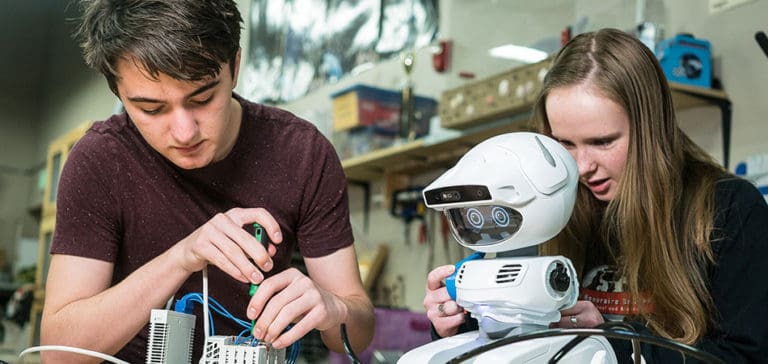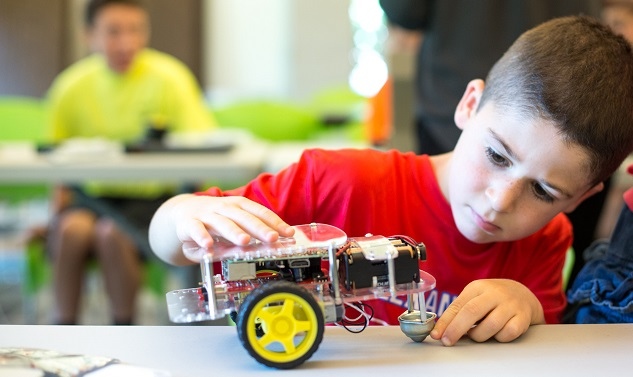Without a doubt, robotics is the next big thing in education. Like it or not, robots and robotics are the future. The sooner we accept robotics in schools and educate our children about robotics, the more prepared they will be for that future. At the moment, robotics is a reality at universities around the world, but imagine the possibilities if children entered those college programs already equipped with some robotic knowledge.

In this article, we have listed some interesting stories from universities to prove that there is already quite an interest in robotics after high school.
Geoffrey Louie, a former Ph.D. student in the Mechanical and Industrial Engineering Department at Toronto’s University of Toronto, said that he fell in love with robots watching cartoons as a child, and adds that the Star Wars character C3PO was a big part of his life. He is currently developing Tangy, a nursing robot that can provide social and cognitive stimulations to long-term care residents through group based recreational activities. His current goal is to create a robot that can help people both physically and socially. Control and sensing technologies are his areas of expertise, and he uses them to design intelligent and useful systems.
Goldie Nejat, Mechanical Engineering Associate Professor and Director of IRM (Institute for Robotics & Mechatronics) at the University of Toronto, says that innovation and research in robotics have become very popular with students at colleges and universities. IRM includes a various range of disciplines such as industrial, mechanical, and biomedical engineering. Main specialization areas include food processing, healthcare, information, and communications technology (ICT), aerospace, and information.
The university has stellar relations with commercial and industrial enterprises, such as Google, MDA, General Motors, and research facilities and major hospitals.
Nejat says that there are currently 360 students studying industrial and mechanical engineering, but when she was a student, that number was only 50.
At the University of Waterloo, mechanical engineering is one of the most popular programs. Dr. William W. Melek, University Director of Mechatronics Engineering, credits the university as the first to start a mechatronics program (a combination of software and mechanical and electrical engineering) in 2003. The program was created to build and design robots and robotic systems. To date, 300 students, most of whom were international students, have graduated from this program.
Waterloo is opening a new facility called Robohub that will be used for advanced and specialized research of magnetic levitation, humanoid robotics, autonomous ground, and unmanned aerial. The facility is slated to open in either late 2017 or early 2018.
Meanwhile, at the Centennial College of Toronto, the industrial robotics program has been developed to meet new-age industries demands, according to Tito Khandaker, program coordinator, and professor at SETAS (School of Engineering Technology and Applied Science).
Khandaker says that graduates learn a lot of theory, math, and physics, and the school also offers practical engineering—an innovative approach compared to other colleges.
The automotive sector has the biggest job market for robotics graduates, along with other sectors such as pharmaceutical companies.
Centennial is well known for its industrial pneumatics and hydraulics expertise (essential components in the process of automation). Mr. Khandaker says that Centennial is one of 26 colleges designated by Fluid Power Educational Foundation (FPEF) in the region.
Many people would argue that there are consequences of turning to robotics. But children should always be curious, explore, and think on their own. We need to move past our beliefs and let children’s interest in robotics guide them throughout their education, from kindergarten to college.

Discover more about robotics with RobotLAB!
Check our products page, and our learning platform Engage!K12 that offer a wide range of lessons for students and teachers! No robotics experience required.



